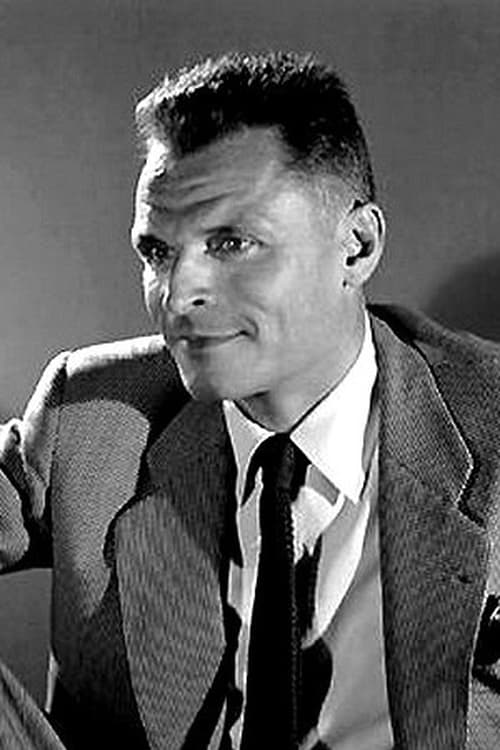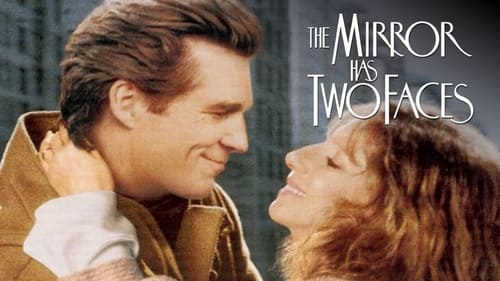
Original Story
Rose Morgan, who still lives with her mother, is a professor of Romantic Literature who desperately longs for passion in her life. Gregory Larkin, a mathematics professor, has been burned by passionate relationships and longs for a sexless union based on friendship and respect.

Dialogue

Writer

Director

Writer

Director

Screenplay
Architect Dumas dies from a bullet of his own gun in front of his house. The police suspect his young Swedish wife Catherine and her English lover Tom Hastings. After numerous interrogations, in which they entangle themselves in contradictions, they try to flee, but are soon both caught and brought to trial, he in England, she in France. Only when Catherine keeps on proclaiming her innocence, superintendent Corbier finally considers believing her.

Director
Architect Dumas dies from a bullet of his own gun in front of his house. The police suspect his young Swedish wife Catherine and her English lover Tom Hastings. After numerous interrogations, in which they entangle themselves in contradictions, they try to flee, but are soon both caught and brought to trial, he in England, she in France. Only when Catherine keeps on proclaiming her innocence, superintendent Corbier finally considers believing her.
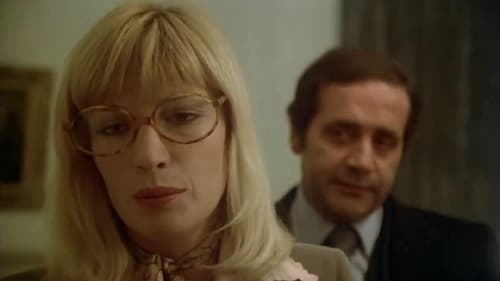
Writer
Professor Marrot obtains the secret documents containing evidence of the illegal weapon transactions between the French government, in the face of its high official Leroi, and two African countries. Before making the public statement, Marrot finds himself under surveillance. In the critical circumstances his Italian friend and partner Angela takes action and the game continues.

Director
Professor Marrot obtains the secret documents containing evidence of the illegal weapon transactions between the French government, in the face of its high official Leroi, and two African countries. Before making the public statement, Marrot finds himself under surveillance. In the critical circumstances his Italian friend and partner Angela takes action and the game continues.

Story
After her daughter is kidnapped, a mother discovers that there can be something even worse after "the worst."

Screenplay
After her daughter is kidnapped, a mother discovers that there can be something even worse after "the worst."

Director
After her daughter is kidnapped, a mother discovers that there can be something even worse after "the worst."
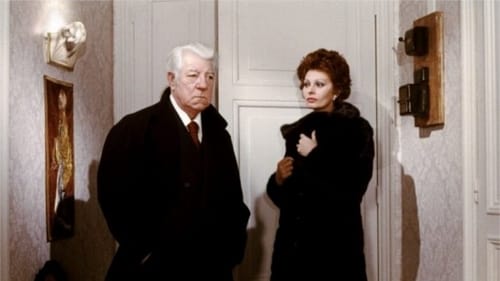
Author
A desperate woman, whose son is on trial for murder, blackmails the judge and kidnaps his wife.

Director
A desperate woman, whose son is on trial for murder, blackmails the judge and kidnaps his wife.

Director
An election campaign becomes more interesting when anonymously published photographs depict the wife of a candidate, Dr. Peyrac, attending a sex party. Are the photographs fake or genuine ?
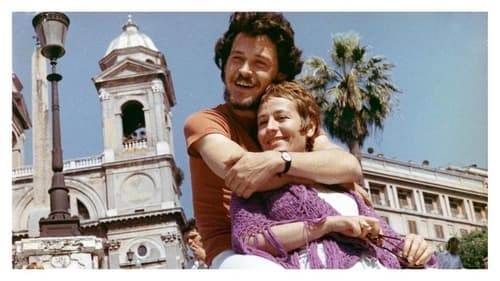
Director
A love story between a teacher, Daniele, 32 years and one of his students Gerard, 17 during the heated atmosphere of May 68. Daniele is a fiery young woman, very involved politically. Gerard's parents accuse Danièle of statutory rape and complain. Danièle is trapped and the drama begins...

Writer
A rebellious socially-conscious man travels to Nepal to find his dead-beat dad. There, he meets Jane, a beautiful hippie girl hooked on drugs. He's forced to steal artefacts for his father's slimy employer to earn money to help Jane.

Director
A rebellious socially-conscious man travels to Nepal to find his dead-beat dad. There, he meets Jane, a beautiful hippie girl hooked on drugs. He's forced to steal artefacts for his father's slimy employer to earn money to help Jane.

Screenplay
A teenage girl accuses her primary schoolteacher, Jean Doucet (Jacques Brel), of trying to rape her. The police and the mayor investigate, but Doucet denies the charges. Two other students come forward to reveal more of Doucet's misconduct – one confessing to be his mistress. Doucet faces trial and hard labor if convicted.

Director
A teenage girl accuses her primary schoolteacher, Jean Doucet (Jacques Brel), of trying to rape her. The police and the mayor investigate, but Doucet denies the charges. Two other students come forward to reveal more of Doucet's misconduct – one confessing to be his mistress. Doucet faces trial and hard labor if convicted.
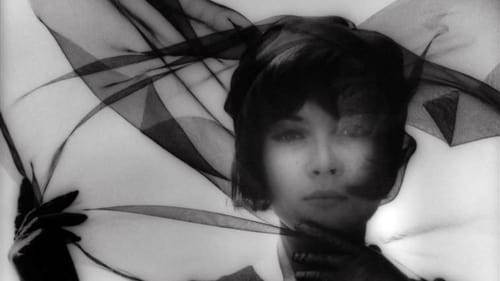
Adaptation
Based on Sébastien Japrisot's novel, the story revolves around a young girl who suffers from amnesia after surviving a terrible fire.

Director
Based on Sébastien Japrisot's novel, the story revolves around a young girl who suffers from amnesia after surviving a terrible fire.

Adaptation
The story of the couple from the very first meeting to break up told from a view of a woman, Francoise. The film shares the same plot with "Jean-Marc ou La vie conjugale", that tells the same story from another perspective.

Screenplay
The story of the couple from the very first meeting to break up told from a view of a woman, Francoise. The film shares the same plot with "Jean-Marc ou La vie conjugale", that tells the same story from another perspective.

Director
The story of the couple from the very first meeting to break up told from a view of a woman, Francoise. The film shares the same plot with "Jean-Marc ou La vie conjugale", that tells the same story from another perspective.

Screenplay
The story of the couple from the very first meeting to break up told from a view of a man, Jean-Marc. The film shares the same plot with "Françoise ou La vie conjugale", that tells the same story from another perspective.

Director
The story of the couple from the very first meeting to break up told from a view of a man, Jean-Marc. The film shares the same plot with "Françoise ou La vie conjugale", that tells the same story from another perspective.

Director
Three young men are suspected of kidnapping and murdering a little boy. Most likely, two of them are really involved, but one is not. All of their pasts are questionable, riddled with violence and controversy. Neither the police nor the court can decide how to solve that puzzle.

Director
Following the defeat of France by Germany during WWII, two french soldiers are taken to a german farm as forced laborers.

Script
Following the defeat of France by Germany during WWII, two french soldiers are taken to a german farm as forced laborers.

Writer
A teacher runs an ad in the newspaper to find a wife. Afraid of beautiful ladies, he weds an ugly woman. After a car accident, he meets a doctor who offers to reveal his wife's beauty.

Director
A teacher runs an ad in the newspaper to find a wife. Afraid of beautiful ladies, he weds an ugly woman. After a car accident, he meets a doctor who offers to reveal his wife's beauty.

Screenplay
In North Africa, an anguished husband tests the character of the doctor he believes is responsible for his wife’s death.

Director
In North Africa, an anguished husband tests the character of the doctor he believes is responsible for his wife’s death.

Screenplay
The title of this French noir drama translates to The Black File. Jean-Marc Bory plays Jacques Arnaud, an idealistic young investigator who comes to work in a small French town. He is soon involved in a mysterious case incriminating a town notable. Arnaud devotes himself to the case but the upshot of this is rather surprising to all concerned, not to mention the audience. Like Cayatte's previous efforts, Le Dossier Noir is based on the proposition that the phrase "French justice" can at times be oxymoronic.

Director
The title of this French noir drama translates to The Black File. Jean-Marc Bory plays Jacques Arnaud, an idealistic young investigator who comes to work in a small French town. He is soon involved in a mysterious case incriminating a town notable. Arnaud devotes himself to the case but the upshot of this is rather surprising to all concerned, not to mention the audience. Like Cayatte's previous efforts, Le Dossier Noir is based on the proposition that the phrase "French justice" can at times be oxymoronic.
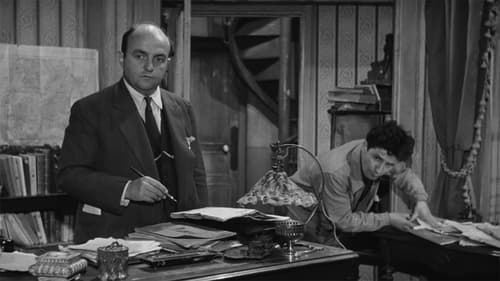
Screenplay
The title of this French "reality" drama, which translates to Before the Deluge, is a play on Louis XVI's famous prognostication, "Apres moi, le deluge." Set in 1950, the film concentrates on five Parisian adolescents. Certain that the next war will herald the apocalypse, the youngster make plans to run off to a desert island and set up a new society. This, however, will require money, which is why the boys decide to pull off a "necessary" robbery. Idealism collapses in the face of cold reality, as the five youths suffer from the consequences of their actions. Avant le Deluge was one of a group of films cowritten by director Andre Cayatte and Charles Spaak which endeavored to explore the touchy social issues of the day: others in the Cayatte-Spaak canon include the euthanasia-themed Justice est Faite and the capital-punishment tract Nous sommes tous des assassins.

Director
The title of this French "reality" drama, which translates to Before the Deluge, is a play on Louis XVI's famous prognostication, "Apres moi, le deluge." Set in 1950, the film concentrates on five Parisian adolescents. Certain that the next war will herald the apocalypse, the youngster make plans to run off to a desert island and set up a new society. This, however, will require money, which is why the boys decide to pull off a "necessary" robbery. Idealism collapses in the face of cold reality, as the five youths suffer from the consequences of their actions. Avant le Deluge was one of a group of films cowritten by director Andre Cayatte and Charles Spaak which endeavored to explore the touchy social issues of the day: others in the Cayatte-Spaak canon include the euthanasia-themed Justice est Faite and the capital-punishment tract Nous sommes tous des assassins.

Scenario Writer
Originally titled Nous Sommes Tout des Assassins, We Are All Murderers was directed by Andre Cayette, a former lawyer who detested France's execution system. Charles Spaak's screenplay makes no attempt to launder the four principal characters (Marcel Mouloudji, Raymond Pellegrin, Antoinine Balpetre, Julien Verdeir): never mind the motivations, these are all hardened murderers. Still, the film condemns the sadistic ritual through which these four men are brought to the guillotine. In France, the policy is to never tell the condemned man when the execution will occur--and then to show up without warning and drag the victim kicking and screaming to his doom, without any opportunity to make peace with himself or his Maker. By the end of this harrowing film, the audience feels as dehumanized as the four "protagonists." We Are All Murderers was roundly roasted by the French law enforcement establishment, but it won a special jury prize at the 1952 Cannes Film Festival.

Director
Originally titled Nous Sommes Tout des Assassins, We Are All Murderers was directed by Andre Cayette, a former lawyer who detested France's execution system. Charles Spaak's screenplay makes no attempt to launder the four principal characters (Marcel Mouloudji, Raymond Pellegrin, Antoinine Balpetre, Julien Verdeir): never mind the motivations, these are all hardened murderers. Still, the film condemns the sadistic ritual through which these four men are brought to the guillotine. In France, the policy is to never tell the condemned man when the execution will occur--and then to show up without warning and drag the victim kicking and screaming to his doom, without any opportunity to make peace with himself or his Maker. By the end of this harrowing film, the audience feels as dehumanized as the four "protagonists." We Are All Murderers was roundly roasted by the French law enforcement establishment, but it won a special jury prize at the 1952 Cannes Film Festival.
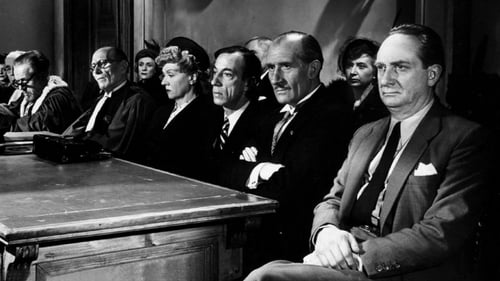
Screenplay
Elsa Lundenstein is accused of having murdered her lover. The jury discusses the case vividly. All members are somehow prejudiced because of personal life experience and subsequently each member reads something different into the presented facts.

Director
Elsa Lundenstein is accused of having murdered her lover. The jury discusses the case vividly. All members are somehow prejudiced because of personal life experience and subsequently each member reads something different into the presented facts.

Director
In France in 1946, the difficult return to civilian life of five deportees and prisoners of war after having lived through the hell of the Second World War.

Writer
Angelo, a glass-blower from Murano, and Georgia Maglia, the pretty daughter of a fallen fascist magistrate, are chosen to be the stand-ins for the stars of a film version of "Romeo and Juliet" being shot on location in Venice and Verona. It is not long before they fall in love and their romance parallels that of Shakespeare's timeless heroes. Indeed their union is threatened by the schemings of Raffaele, the Maglia family's dubious tout...

Director
Angelo, a glass-blower from Murano, and Georgia Maglia, the pretty daughter of a fallen fascist magistrate, are chosen to be the stand-ins for the stars of a film version of "Romeo and Juliet" being shot on location in Venice and Verona. It is not long before they fall in love and their romance parallels that of Shakespeare's timeless heroes. Indeed their union is threatened by the schemings of Raffaele, the Maglia family's dubious tout...

Screenplay
Claude Géraudy, a banker responsible for a financial scandal, is forced to flee and hides in the mountains with the help of Manu, a young smuggler. Florence, his wife, refuses to join him. Desperate Claude commits suicide, Florence then decides to pass her suicide off as murder in order to receive her late husband's life insurance.

Director
Claude Géraudy, a banker responsible for a financial scandal, is forced to flee and hides in the mountains with the help of Manu, a young smuggler. Florence, his wife, refuses to join him. Desperate Claude commits suicide, Florence then decides to pass her suicide off as murder in order to receive her late husband's life insurance.

Director
Julien Mortal, a singer from Portugal suffering from amnesia, made a career in France under the name of Paolo. One day, he discovers the truth about his past: a man tried to assassinate him.

Writer
Roger Laroque is now a rich man. He returns to France under the name of William Farnell. There, he discovers that on the one hand his wife has died of a broken heart and on the other that his daughter Suzanne is in love with Raymond de Noirville, the son of his former mistress. With the help of a few friends, Roger coldly prepares his revenge.

Director
Roger Laroque is now a rich man. He returns to France under the name of William Farnell. There, he discovers that on the one hand his wife has died of a broken heart and on the other that his daughter Suzanne is in love with Raymond de Noirville, the son of his former mistress. With the help of a few friends, Roger coldly prepares his revenge.

Writer
Roger Laroque, an honest industrialist, is the victim of a criminal machination by Julia de Noirville, his possessive and jealous mistress allied to the perfidious Paul Luversan, meant to make Roger take responsibility for the crime he himself committed. Laroque is sent to prison, from where he escapes by sea. When he is reported missing, it looks like he drowned. But he reappears with revenge as his objective. He also wants his daughter Suzanne back. For his wife, it's too late, she died of grief.

Director
Roger Laroque, an honest industrialist, is the victim of a criminal machination by Julia de Noirville, his possessive and jealous mistress allied to the perfidious Paul Luversan, meant to make Roger take responsibility for the crime he himself committed. Laroque is sent to prison, from where he escapes by sea. When he is reported missing, it looks like he drowned. But he reappears with revenge as his objective. He also wants his daughter Suzanne back. For his wife, it's too late, she died of grief.

Director
Sylvio, a successful singer, has found a way to take a peaceful vacation, safe from his female adulators: to travel incognito. He puts up at an old castle whose landlord, Count Fabrice, a ruined nobleman, seeks a hidden treasure. Posing as the nephew of the castle gardener, Sylvio enjoys happy days and even finds the time to fall in love with Gracieuse, the count's daughter. Unfortunately for him, his impresario ends up locating him...

Screenplay
Pierre risks being taken advantage of by an agency that sets up financial scams, he escapes thanks to Marcelle, the secretary of the director of the agency, who is a childhood friend. She does her best to keep the young man away from the scams of his boss. However, the director, in love with Marcelle and jealous of Pierre, succeeds in trapping and ruining him. Marcelle will then denounce him to the police, but before being arrested he will kill her.

Director
Pierre risks being taken advantage of by an agency that sets up financial scams, he escapes thanks to Marcelle, the secretary of the director of the agency, who is a childhood friend. She does her best to keep the young man away from the scams of his boss. However, the director, in love with Marcelle and jealous of Pierre, succeeds in trapping and ruining him. Marcelle will then denounce him to the police, but before being arrested he will kill her.

Screenplay
Alice, an unhappy young woman in the household, is the mother of a little boy, Pierre. She falls in love with a young doctor and plans to run away with him and his son. Finally, not considering the right to deprive Pierre of his father, she gives up. Twenty years pass, Pierre has grown up, he suspects his little brother, Jean, of just being his half-brother. His suspicions gnaw at him, his mother confesses to him her past fault. Faced with this confession, Pierre will abandon the one who sacrificed her life for him.

Director
Alice, an unhappy young woman in the household, is the mother of a little boy, Pierre. She falls in love with a young doctor and plans to run away with him and his son. Finally, not considering the right to deprive Pierre of his father, she gives up. Twenty years pass, Pierre has grown up, he suspects his little brother, Jean, of just being his half-brother. His suspicions gnaw at him, his mother confesses to him her past fault. Faced with this confession, Pierre will abandon the one who sacrificed her life for him.
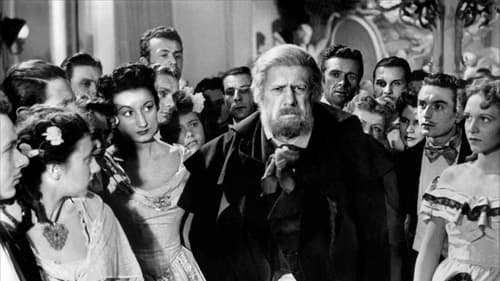
Writer
The struggles of a small business owner come to light in this film by director André Cayatte. The proprietor of a fabric shop, M. Baudu (Michel Simon) faces stiff competition when a department store moves in across the street, the first of its kind in 1860s Paris. On top of the stresses associated with the rival retailer, Baudu’s niece and two nephews take up residence with him after recently being orphaned. The niece, Denise Baudu (Blanchette Brunoy), sees the writing on the wall for her uncle’s business so she takes a job as a shop girl with his competitor and despite her success the decision does not register well with the family.

Director
The struggles of a small business owner come to light in this film by director André Cayatte. The proprietor of a fabric shop, M. Baudu (Michel Simon) faces stiff competition when a department store moves in across the street, the first of its kind in 1860s Paris. On top of the stresses associated with the rival retailer, Baudu’s niece and two nephews take up residence with him after recently being orphaned. The niece, Denise Baudu (Blanchette Brunoy), sees the writing on the wall for her uncle’s business so she takes a job as a shop girl with his competitor and despite her success the decision does not register well with the family.
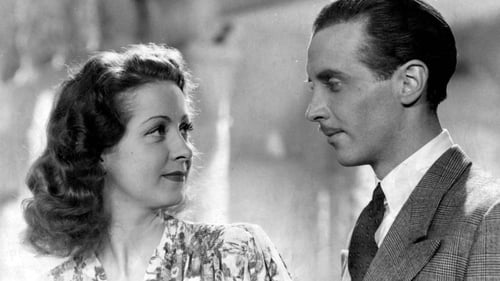
Screenplay
Guy Carbonnel, a rich industrialist, has more eyes for rugby than for his wife Hélène. René Rivals, his long-time pal, takes advantage of it to court her but Guy is becoming suspicious so René has to find a way to deflect his friend's suspicion. He finally has an idea: he asks Lilian, a circus acrobat, to pose as his mistress. Lilian accepts and they embark on a series of eventful moments.

Director
Guy Carbonnel, a rich industrialist, has more eyes for rugby than for his wife Hélène. René Rivals, his long-time pal, takes advantage of it to court her but Guy is becoming suspicious so René has to find a way to deflect his friend's suspicion. He finally has an idea: he asks Lilian, a circus acrobat, to pose as his mistress. Lilian accepts and they embark on a series of eventful moments.

Assistant Director
A scatterbrained girl harasses a lawyer in Cannes.

Dialogue
Caprices tells the story of two young rich people. A famous actress poses as a poor florist, and a distinguished society man camouflages himself as forger and swindler. This game leads them to make close relations in a series of adventures.
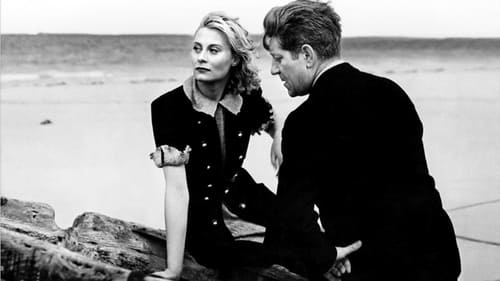
Adaptation
A married tugboat captain falls for a woman he rescues from a sinking ship.

Screenplay
Maurice loves Juliet and Michael loves Lily. Romance blossoms on the hill. They are workers, artisans, and Lily has a real talent as a singer. But Claude's arrival brings trouble to their relationships. Maurice, jealous, approaches Lily. Singing in the streets, Lily quickly becomes a cabaret star.
